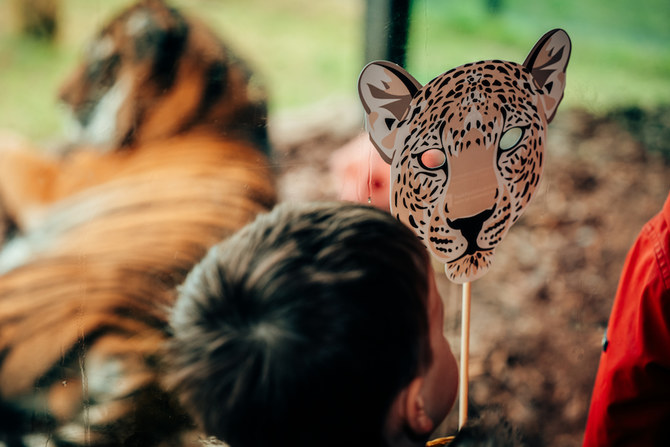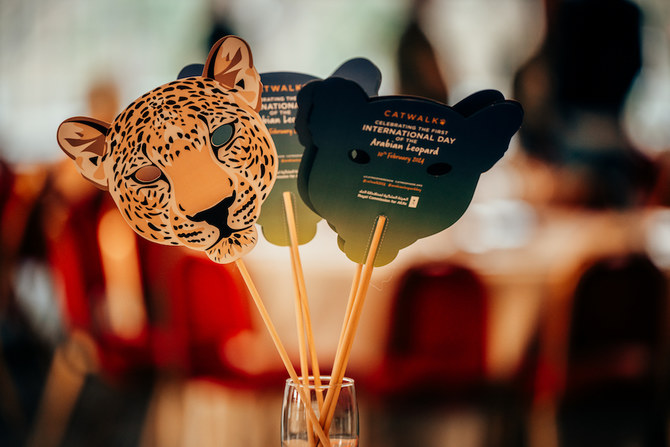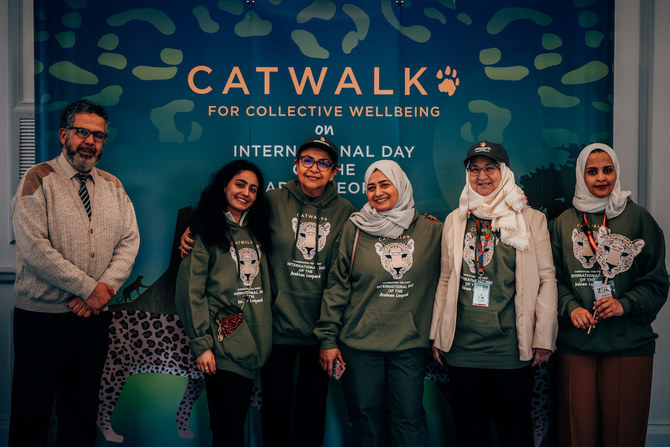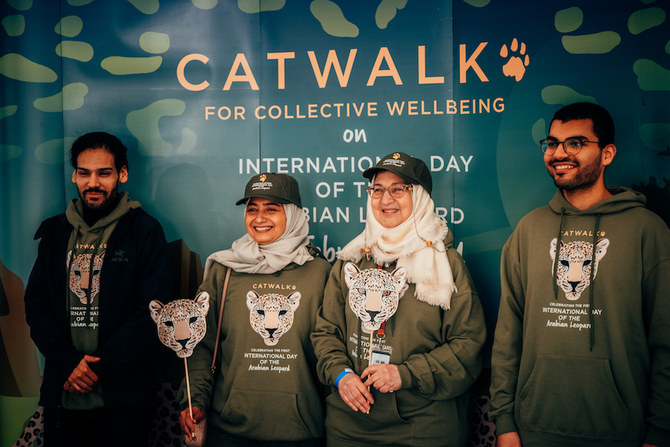LONDON: The Saudi Embassy in the UK on Saturday invited families and visitors to celebrate the first International Day of the Arabian Leopard at London Zoo and take part in the third annual Catwalk.
The full-day event was hosted by the Royal Commission for AlUla and Catmosphere, a foundation that encourages people to take action to protect the environment and habitats of big cats.
“The Royal Commission for AlUla has responsibility across the Kingdom to bring back the Arabian leopard, and part of that work is to raise awareness of the plight of the Arabian leopard,” Stephen Browne, vice president of wildlife and natural heritage at RCU, told Arab News.
The day has been marked by Saudi Arabia for the last three years, but this year saw it celebrated globally after Catmosphere and the Arabian Leopard Fund collaborated with the Saudi Mission to the UN in New York to gain international recognition for the day on Feb. 10 each year.
“The result of that designation is now we have the first international day recognizing a big cat species, and the importance of that is that we can bring together people across the world to unite behind the species to then improve its conservation, but also to raise awareness about conservation globally,” Browne said.
He added that RCU wanted to make the initiative global and chose various places worldwide, including in London at the world’s oldest scientific zoo, to try to engage as much as possible with international experts and organizations.
“The Zoological Society of London is one of the world’s best and oldest conservation organizations, having been in existence for 200 years, and we hope in due course to partner with them and hopefully they’ll be able to support us in our work in AlUla,” Browne said.
“Anywhere in the world that has endangered cats, which is pretty much everywhere, we’d like them to take part in this to raise awareness (of) big cats and their conservation, also through our endeavors to get people to get out and about to improve their own well-being by doing exercise, by being out, meeting people, discussing topics, enjoying green spaces. So it’s more than just the conservation of big cats.”
There are less than 200 Arabian leopards left in the wild in the world, which puts this species at a higher risk of extinction, and baby leopards are very rare, Browne said.
“It’s very hard for members of the public to actually contribute directly through anything, so events like this allow people to engage in conservation by helping to raise awareness, by drawing sort of media attention,” he added.
“But in terms of beyond the Arabian leopard, if you look at the Catwalk, which is for seven species, it’s possible that people could actually engage on the ground by doing the various initiatives in their respective countries.”
Leopards in Saudi Arabia have a long cultural association, particularly in AlUla, which has rock carvings going back 7,000 years.
“It’s a species that people have related to for a long time, and we’re trying to use it as an emblem around which people can build national pride in that species, maybe national pride in conservation,” Browne said.
But to bring back the Arabian leopard, its whole ecosystem must also be brought back, developed and protected, including its food and the grasslands that the leopard food feeds on, habitat enhancement and reintroducing new species, he added.
In 2021, Catmosphere, which was founded by Saudi Ambassador to the US Princess Reema bint Bandar, launched a flagship mass-participation campaign called Catwalk.
The annual, global, outdoor walk of up to 7 km is designed to raise awareness of our interconnected wellbeing by highlighting the plight of the seven species of big cats.
“Catwalk invites participants to get active in nature as a way of underlining the critical need that big cats have for their natural habitats, while simultaneously triggering appreciation of the physical and mental benefits of outdoor physical activity,” the Saudi Embassy in Washington DC said in November 2022.
In 2021 and 2022 cumulatively, the initiative inspired more than 90,000 people to walk to support conservation and well-being in 136 countries.
Dr. Amal Fatani, the Saudi cultural attache to the UK, expressed pride that the day was being marked in many cities worldwide, including more than 16 locations in Riyadh.
She said 350 Saudi students in the UK registered to attend the event at London Zoo along with their families, while more than 35 cultural bureaus also registered to attend.
“You can tell by the number of people here today that they are totally enjoying it but also learning about it … This is very important,” Fatani added.





























